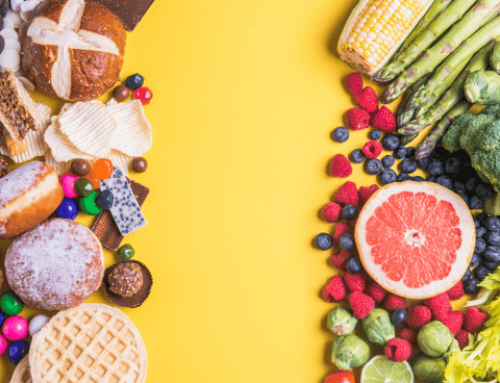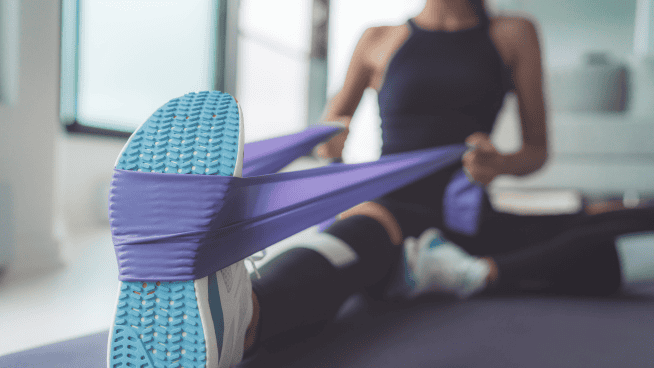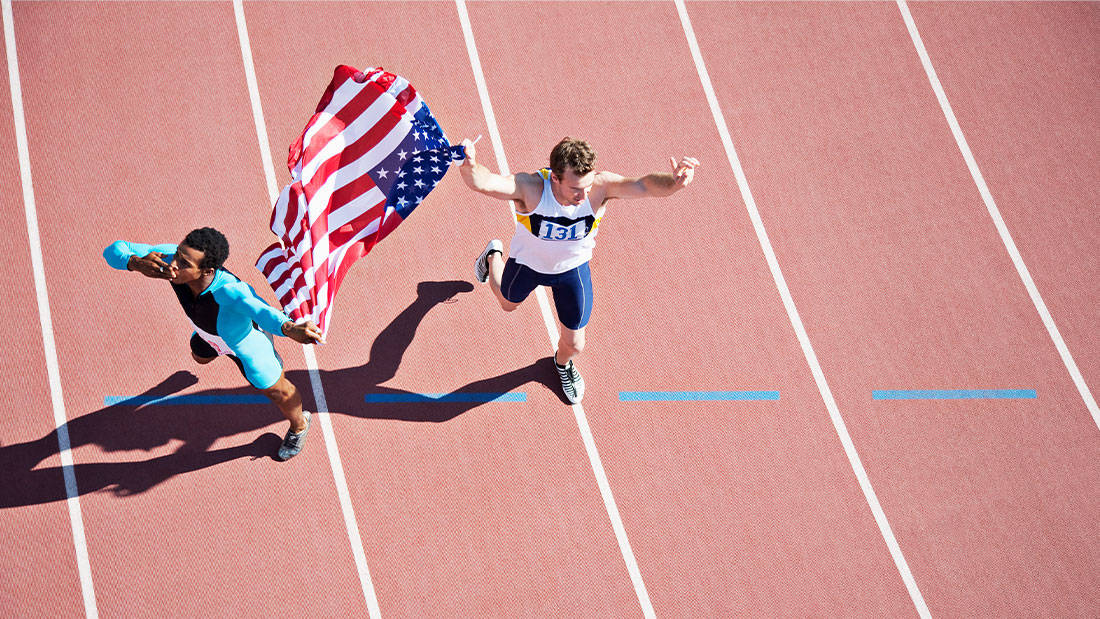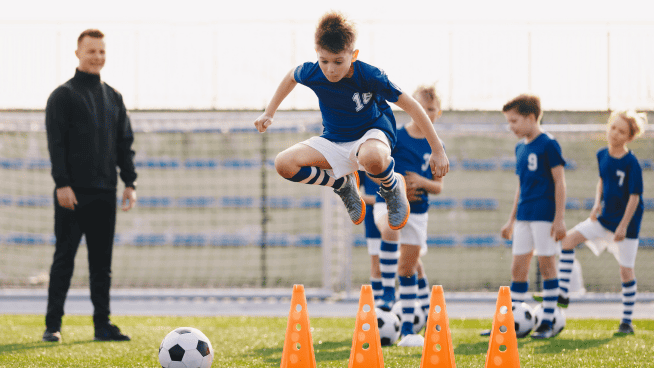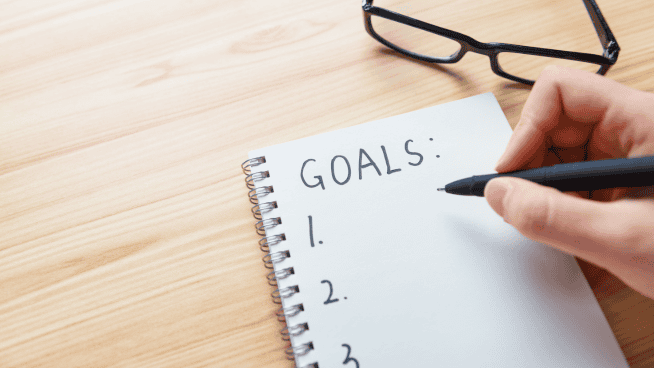Electrolytes For Youth Athletes
Electrolytes are a key piece to any athlete’s arsenal. Here is what you need to know.
Growing up, I fell victim. High-sugary drinks, such as Gatorade and Powerade, were taught as the athlete’s only way to replenish, recover, and rehydrate.
The only issue is that these high sugar, high-calorie drinks tend to do more harm than good. Artificial dyes, ingredients, and added sugar leave an athlete in a backseat and truly not getting the best when it comes to rehydration.
Electrolytes can be the perfect replenishment your body needs, but Gatorade and Powerade fail to pack a punch with proper amounts of electrolytes. Instead, they deliver a mad rush of sugar that can lead to a crash later.
Why Electrolytes Matter
Electrolytes are minerals that function as electrical transporters when dissolved in water. These transporters create electrical currents, allowing fluid to pass through our cell membranes. This means that they provide our bodies with the nutrients needed to function properly every day. You could say that they are the “gas” for our engines (body). Not only do they help us function day today, but they also help repair damaged tissue that we break down from training. Additionally, they help our blood clots when needed and help build new muscle tissue.
The key electrolytes in our body are:
- Sodium
- Potassium
- Calcium
- Bicarbonate
- Magnesium
- Chloride
- Phosphate
Foods higher in electrolytes include spinach, turkey, potatoes, beans, avocados, oranges, soybeans (edamame), strawberries, and bananas.
Replenishing Electrolytes
Electrolytes are primarily lost through sweating and can become depleted during exercise. The main ones are sodium and potassium. It is important to note that they cannot be replaced through water itself. It is important to fuel on during and after exercise to replenish them. One thing to be careful about is the overconsumption of some more common ones like calcium. Too much can cause kidney stones, so make sure you talk to your doctor before starting to supplement with them.
When electrolytes are depleted your body can experience weakness, tingling, dehydration, fatigue, and even heart rhythm disturbances.
Key signs of dehydration and depletion can consist of headaches, fatigue, nausea/dizziness, and increased heart rate. If you lose more than 1% of your body’s water, muscle imbalances can occur. Still, it only takes body water losses of 1-2% before noticing thirst, making it important to stay ahead of dehydration.
You might be able to relate to this, especially during the summer. You go through your sport or activity on just water but come to find 2-3 hours later you feel tired, lethargic, and possibly even sick to your stomach if you didn’t eat anything also.
Many of us may not feel thirsty or want electrolytes during activity, which is okay. However, it is vital to replenish right after, even if you do not feel like it. Skimping on a post-workout meal isn’t the end of your Recovery, but missing out on getting the lost electrolytes can lead to a lot of side effects disabling you from training at your best. During the colder months, many of us do not feel the need to replenish. Staying on your hydration can be an essential piece of your performance. A good guide is to try to hydrate with 7-10 ounces every thirty minutes while exercising.
How to Pick The Right Drinks For Athletes
You want a drink that contains five essential electrolytes: Sodium, Potassium, Calcium, Chloride, and Magnesium.
Electrolytes are important for youth athletes. Electrolytes help replenish minerals lost in sweat and are the key to proper hydration so your body can perform at its best. Unfortunately, most drinks out there have artificial sweeteners, dyes, and sugar. Most convenience stores and gas stations don’t have the best options out there, making it hard for athletes who are always on the go, but there are better options out there.
Companies take pride in offering “ready to drink” bottles and powders containing the proper amounts you need without the added sugar and artificial dyes.
Some companies even offer dissolvable tablets. You want to look for the label and try to pick ones with the recommended averages for each mineral.
There are two considerations for athletes for deciding on water or a sports drink that contains electrolytes. First, consider how long they are practicing. If they are training for more than an hour, they will still want some electrolytes to replace those lost through sweat, even if it’s mostly easy.
Second, consider what the temperature is outside. If your athlete is in hot weather where they’ll be working up a sweat, they will need electrolytes. If the practice isn’t hard or long, they may not need added calories with those electrolytes.
Hydrating Drinks
- Coconut Water
- Milk
- Watermelon and other fruit
- Pedialyte
If you are unsure if you or your athlete should be taking electrolytes, look out for these simple signs of dehydration:
- Dry mouth and tongue
- Thirst
- Lethargy
- Dry skin
- Muscle weakness
- Dizziness
- Dark urine
Not only are they essential for your everyday bodily functions, but they help an athlete perform, recover, and build new tissue. Over the years, our supplement industry has evolved to give us a vast majority of options to aid. However, you still need to make sure you take the time to read the labels to ensure you are hydrating correctly and without drinking the amount of sugar you see in a soda.
Read More
RECOMMENDED FOR YOU
MOST POPULAR
Electrolytes For Youth Athletes
Electrolytes are a key piece to any athlete’s arsenal. Here is what you need to know.
Growing up, I fell victim. High-sugary drinks, such as Gatorade and Powerade, were taught as the athlete’s only way to replenish, recover, and rehydrate.
The only issue is that these high sugar, high-calorie drinks tend to do more harm than good. Artificial dyes, ingredients, and added sugar leave an athlete in a backseat and truly not getting the best when it comes to rehydration.
Electrolytes can be the perfect replenishment your body needs, but Gatorade and Powerade fail to pack a punch with proper amounts of electrolytes. Instead, they deliver a mad rush of sugar that can lead to a crash later.
Why Electrolytes Matter
Electrolytes are minerals that function as electrical transporters when dissolved in water. These transporters create electrical currents, allowing fluid to pass through our cell membranes. This means that they provide our bodies with the nutrients needed to function properly every day. You could say that they are the “gas” for our engines (body). Not only do they help us function day today, but they also help repair damaged tissue that we break down from training. Additionally, they help our blood clots when needed and help build new muscle tissue.
The key electrolytes in our body are:
- Sodium
- Potassium
- Calcium
- Bicarbonate
- Magnesium
- Chloride
- Phosphate
Foods higher in electrolytes include spinach, turkey, potatoes, beans, avocados, oranges, soybeans (edamame), strawberries, and bananas.
Replenishing Electrolytes
Electrolytes are primarily lost through sweating and can become depleted during exercise. The main ones are sodium and potassium. It is important to note that they cannot be replaced through water itself. It is important to fuel on during and after exercise to replenish them. One thing to be careful about is the overconsumption of some more common ones like calcium. Too much can cause kidney stones, so make sure you talk to your doctor before starting to supplement with them.
When electrolytes are depleted your body can experience weakness, tingling, dehydration, fatigue, and even heart rhythm disturbances.
Key signs of dehydration and depletion can consist of headaches, fatigue, nausea/dizziness, and increased heart rate. If you lose more than 1% of your body’s water, muscle imbalances can occur. Still, it only takes body water losses of 1-2% before noticing thirst, making it important to stay ahead of dehydration.
You might be able to relate to this, especially during the summer. You go through your sport or activity on just water but come to find 2-3 hours later you feel tired, lethargic, and possibly even sick to your stomach if you didn’t eat anything also.
Many of us may not feel thirsty or want electrolytes during activity, which is okay. However, it is vital to replenish right after, even if you do not feel like it. Skimping on a post-workout meal isn’t the end of your Recovery, but missing out on getting the lost electrolytes can lead to a lot of side effects disabling you from training at your best. During the colder months, many of us do not feel the need to replenish. Staying on your hydration can be an essential piece of your performance. A good guide is to try to hydrate with 7-10 ounces every thirty minutes while exercising.
How to Pick The Right Drinks For Athletes
You want a drink that contains five essential electrolytes: Sodium, Potassium, Calcium, Chloride, and Magnesium.
Electrolytes are important for youth athletes. Electrolytes help replenish minerals lost in sweat and are the key to proper hydration so your body can perform at its best. Unfortunately, most drinks out there have artificial sweeteners, dyes, and sugar. Most convenience stores and gas stations don’t have the best options out there, making it hard for athletes who are always on the go, but there are better options out there.
Companies take pride in offering “ready to drink” bottles and powders containing the proper amounts you need without the added sugar and artificial dyes.
Some companies even offer dissolvable tablets. You want to look for the label and try to pick ones with the recommended averages for each mineral.
There are two considerations for athletes for deciding on water or a sports drink that contains electrolytes. First, consider how long they are practicing. If they are training for more than an hour, they will still want some electrolytes to replace those lost through sweat, even if it’s mostly easy.
Second, consider what the temperature is outside. If your athlete is in hot weather where they’ll be working up a sweat, they will need electrolytes. If the practice isn’t hard or long, they may not need added calories with those electrolytes.
Hydrating Drinks
- Coconut Water
- Milk
- Watermelon and other fruit
- Pedialyte
If you are unsure if you or your athlete should be taking electrolytes, look out for these simple signs of dehydration:
- Dry mouth and tongue
- Thirst
- Lethargy
- Dry skin
- Muscle weakness
- Dizziness
- Dark urine
Not only are they essential for your everyday bodily functions, but they help an athlete perform, recover, and build new tissue. Over the years, our supplement industry has evolved to give us a vast majority of options to aid. However, you still need to make sure you take the time to read the labels to ensure you are hydrating correctly and without drinking the amount of sugar you see in a soda.
Read More




